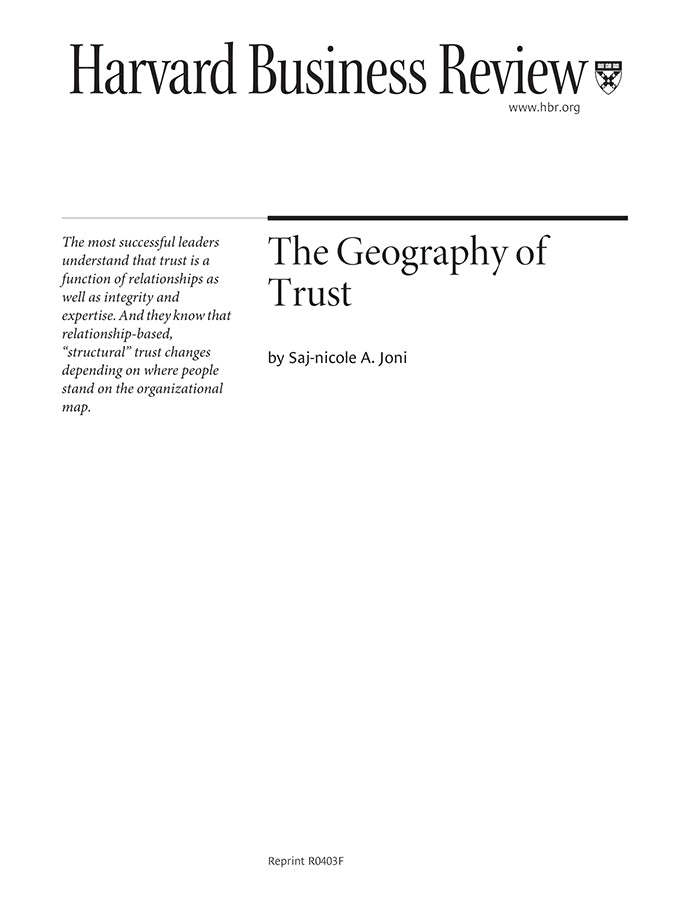Geography of Trust
受取状況を読み込めませんでした
Leaders who rely forever on the same internal advisers run the risk of being sold short and possibly betrayed. Alternatively, lone-wolf leaders may make enormous, yet preventable, mistakes when trying to sort through difficult decisions. A sophisticated understanding of trust can protect leaders from both fates. During the past decade, author and consultant Saj-nicole Joni studied leadership in more than 150 European and North American companies. Her research reveals three fundamental types of trust: personal trust, expertise trust, and structural trust. Executives may persevere in relationships that are based on personal trust, but such relationships are unlikely to remain static--and probably won't provide the kinds of deep, often specialized knowledge leaders need. In organizations, leaders develop expertise trust by working closely with people who consistently demonstrate their mastery of particular subjects or processes. Structural trust refers to how roles and ambitions influence advisers' perspectives and candor. Advisers in positions of the highest structural trust generally reside outside organizations, providing leaders with insights that their organizations cannot. High-performing leaders' most enduring valuable relationships are characterized by enormous levels of all three kinds of trust.
【書誌情報】
ページ数:12ページ
サイズ:A4
商品番号:HBSP-R0403F
発行日:2004/3/1
登録日:2012/3/28


